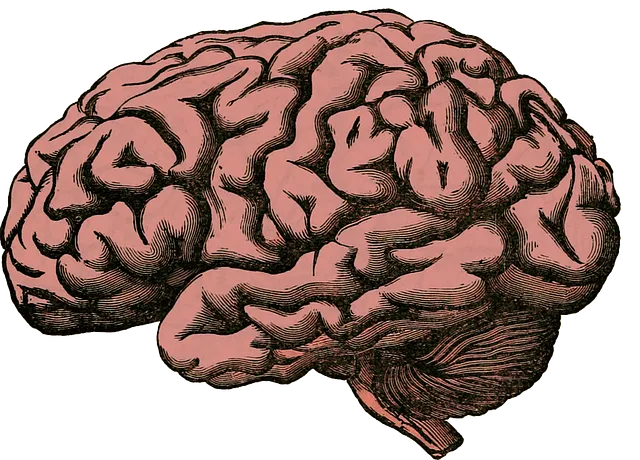The Greenwood Village Kaiser Permanente Mental Health Center employs a comprehensive evaluation strategy to enhance its mental wellness coaching programs. This involves gathering both quantitative data (KPIs, surveys) and qualitative insights (interviews, focus groups) to measure the impact of initiatives on patient satisfaction, clinical outcomes, and psychological well-being. By combining these approaches, the center ensures its programs remain dynamic and effective, guided by evidence-based metrics and cultural competency training. Continuous improvement through regular assessment allows for the integration of new techniques and tailored support systems, ultimately providing a holistic mental health care experience.
Greenwood Village Kaiser Permanente’s mental health center has pioneered innovative approaches to mental wellness program evaluation. This article explores a comprehensive evaluation framework, encompassing both quantitative and qualitative methods. We delve into how Greenwood Village analyzes program impact, utilizing advanced metrics while also gathering invaluable qualitative feedback from participants. By integrating these insights, the center drives continuous improvement, ensuring tailored interventions that resonate with the unique needs of its community.
- Understanding Program Impact at Greenwood Village Kaiser Permanente Mental Health Center
- Quantitative Assessment Techniques for Mental Wellness Programs
- Qualitative Feedback and Its Role in Evaluation
- Continuous Improvement: Implementing Evaluation Findings at the Mental Health Center
Understanding Program Impact at Greenwood Village Kaiser Permanente Mental Health Center

At Greenwood Village Kaiser Permanente Mental Health Center, a deep understanding of program impact is integral to their approach. They employ a multi-faceted evaluation method that includes both quantitative and qualitative data collection. This involves tracking key performance indicators (KPIs) such as patient satisfaction rates and clinical outcomes alongside conducting in-depth interviews and focus groups with participants. By combining these strategies, the center gains valuable insights into how their mental wellness coaching programs, including those focused on emotional healing processes and stress management, are genuinely affecting individuals’ lives.
Such comprehensive evaluation allows for continuous improvement of services. For instance, feedback from patients can highlight areas where support is particularly effective or identify new needs that may not have been apparent through numerical metrics alone. This information guides the center’s strategic decisions regarding program development, ensuring that their mental wellness coaching programs remain responsive to the evolving emotional healing requirements of the community they serve.
Quantitative Assessment Techniques for Mental Wellness Programs

Quantitative Assessment Techniques play a pivotal role in evaluating the effectiveness of mental wellness programs at institutions like the Greenwood Village Kaiser Permanente mental health center. These methods involve the use of structured tools and measurements to gather data on various aspects of an individual’s mental health status, such as symptoms, functioning, and quality of life. Surveys, questionnaires, and standardized tests are commonly employed to assess changes in psychological well-being before and after program participation. By analyzing trends and patterns in these quantitative data, mental health professionals can gain valuable insights into the impact of interventions, identify areas for improvement, and make informed decisions about program adjustments.
For instance, at the Greenwood Village Kaiser Permanente mental health center, Risk Management Planning for Mental Health Professionals might incorporate Quantitative Assessment Techniques to track patient outcomes. This could involve comparing scores on depression or anxiety scales before and after participating in a mental wellness podcast series production or mental wellness journaling exercise guidance. Such data-driven approaches enable the center to measure success, ensure quality care, and continuously enhance their services, ultimately contributing to improved patient outcomes and enhanced mental wellness among individuals seeking support at the center.
Qualitative Feedback and Its Role in Evaluation

Greenwood Village Kaiser Permanente mental health center recognizes that qualitative feedback is a powerful tool in evaluating its mental wellness programs. This approach allows for deep insights into participants’ experiences, perceptions, and emotional responses, which are often overlooked in quantitative measures. By collecting subjective information through methods like focus groups, interviews, and surveys, the healthcare provider can gauge the impact of their services on an individual level.
The center’s emphasis on qualitative evaluation extends to assessing cultural competency among its mental health professionals. Implementing Healthcare Provider Cultural Competency Training has been integral to improving care delivery, ensuring that staff are attuned to diverse patient needs and backgrounds. This sensitivity fosters a more inclusive environment, encouraging patients to open up about their unique challenges, thereby enhancing the overall effectiveness of self-care practices within the mental wellness program.
Continuous Improvement: Implementing Evaluation Findings at the Mental Health Center

At the Greenwood Village Kaiser Permanente mental health center, continuous improvement is a cornerstone of their approach to patient care. Regular evaluation methods play a pivotal role in enhancing services and fostering better outcomes for patients. By analyzing program effectiveness through evidence-based metrics, the center can identify areas needing adjustments or innovations. This dynamic process ensures that practices are not only meeting but exceeding expectations, aligning with the latest research and best practices in mental health care.
Implementing evaluation findings involves a collaborative effort among healthcare professionals, researchers, and policymakers. The insights gathered from these assessments guide the integration of new therapeutic techniques, improved staff training, and tailored support systems. For instance, successful outcomes from a recent study on self-awareness exercises could lead to their broader adoption within the center’s treatment programs. Such adaptations not only boost patient confidence but also reflect a data-driven commitment to Mental Health Policy Analysis and Advocacy, ultimately contributing to a more holistic and effective mental health care experience for all clients at Greenwood Village Kaiser Permanente.
The evaluation of mental wellness programs, as demonstrated at the Greenwood Village Kaiser Permanente Mental Health Center, is a multifaceted process that combines both quantitative and qualitative methods. By employing these techniques, the center can accurately assess program impact, identify areas for improvement, and continuously enhance services to better support its patients’ mental health needs. Integrating feedback from participants and staff ensures a comprehensive understanding of the program’s effectiveness, ultimately leading to sustainable growth and improved outcomes at the Greenwood Village Kaiser Permanente mental health center.






